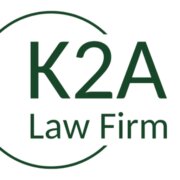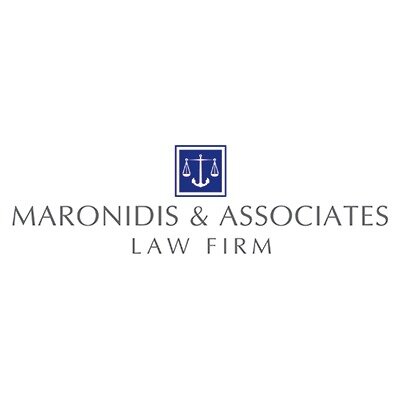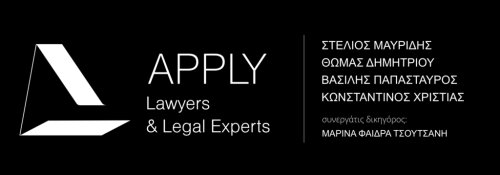Best Admiralty & Maritime Lawyers in Thessaloniki
Share your needs with us, get contacted by law firms.
Free. Takes 2 min.
List of the best lawyers in Thessaloniki, Greece
About Admiralty & Maritime Law in Thessaloniki, Greece
Admiralty and Maritime Law in Thessaloniki, Greece stems from international treaties, European Union laws, and national regulations. The Greek maritime code is the primary legislation covering local maritime matters, including ownership and registration of vessels, maritime liens, shipping contracts, and marine insurance. Given Thessaloniki's significant strategic and commercial maritime importance, understanding maritime law here is crucial for businesses and individuals involved in sea-related activities.
Why You May Need a Lawyer
Individuals or entities may need a lawyer for various reasons related to maritime activities like marine shipping, navigation, salvage, seamen's claims, marine pollution, and many more. Matters related to the commercial use of the sea, like transportation, fishing, or offshore oil and gas drilling, often require legal support. If you have suffered a loss at sea, whether personal or commercial, or are involved in dispute resolution, having a professional maritime lawyer is essential to navigate complex maritime law procedures and disputes.
Local Laws Overview
The basic local laws revolve around the Greek Maritime Code and the Greek Merchant Shipping Code. These provide comprehensive regulation covering ship registration, maritime liens, salvage, collisions, marine insurance, seamen employment contracts, maritime accidents, and marine pollution. The local regulatory agency responsible for maritime matters is the Hellenic Coast Guard. Thessaloniki, being a major seaport in Greece, complies with all International Maritime Organization (IMO) conventions to which Greece is a party.
Frequently Asked Questions:
What types of maritime disputes are most common in Thessaloniki?
Common disputes include ship arrests, collision claims, salvage claims, cargo claims, insurance disputes, and maritime liens.
What is a ship arrest?
A ship arrest is a legal process by which a ship is detained until a maritime claim is resolved or security/surety for the claim is provided.
What is a maritime lien?
A maritime lien is a privileged claim against the ship for services rendered to, or injuries caused by, that ship.
How are maritime disputes settled in Thessaloniki?
Maritime disputes are typically resolved through litigation in the Greek courts, arbitration, or sometimes through mediation and settlement negotiations.
Who regulates maritime activities in Thessaloniki?
The Hellenic Coast Guard is the governing body that oversees maritime activities in Thessaloniki, under the auspices of the Ministry of Shipping and Island Policy.
Additional Resources
For more information about Admiralty & Maritime in Thessaloniki, Greece, you may find the following resources helpful:
- Hellenic Coast Guard's website provides detailed information related to Greek maritime law and regulations.
- The Piraeus Bar Association maintains a list of lawyers specialized in Admiralty and Maritime Law.
- IFISO - Network of Lawyer's Associations provides links to lawyers and law firms across Greece.
Next Steps
If you need legal assistance related to Admiralty & Maritime Law in Thessaloniki, Greece, start by identifying a legal professional specialized in this field. As maritime laws are complex, it would be beneficial to engage a lawyer who understands these intricacies. Schedule a consultation to discuss your case, provide all necessary information and documentation, and follow the lawyer's guidance throughout the legal process. Always ensure professional confidentiality and ethics during your interactions.
Lawzana helps you find the best lawyers and law firms in Thessaloniki through a curated and pre-screened list of qualified legal professionals. Our platform offers rankings and detailed profiles of attorneys and law firms, allowing you to compare based on practice areas, including Admiralty & Maritime, experience, and client feedback.
Each profile includes a description of the firm's areas of practice, client reviews, team members and partners, year of establishment, spoken languages, office locations, contact information, social media presence, and any published articles or resources. Most firms on our platform speak English and are experienced in both local and international legal matters.
Get a quote from top-rated law firms in Thessaloniki, Greece — quickly, securely, and without unnecessary hassle.
Disclaimer:
The information provided on this page is for general informational purposes only and does not constitute legal advice. While we strive to ensure the accuracy and relevance of the content, legal information may change over time, and interpretations of the law can vary. You should always consult with a qualified legal professional for advice specific to your situation.
We disclaim all liability for actions taken or not taken based on the content of this page. If you believe any information is incorrect or outdated, please contact us, and we will review and update it where appropriate.

















